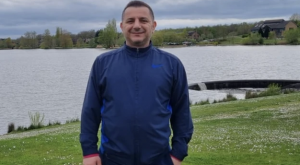Kenny Baker, Star Wars R2-D2 actor, dies aged 81
British actor Kenny Baker, who starred as R2-D2 in six Star Wars films, has died aged 81 after a long illness, his niece has confirmed.

British actor Kenny Baker, who starred as R2-D2 in six Star Wars films, has died aged 81 after a long illness, his niece has confirmed.
Baker made his name as the robot in the first Star Wars film in 1977 alongside Anthony Daniels’s C-3PO character.
Star Wars creator George Lucas paid tribute to a “real gentleman” and Mark Hamill – Luke Skywalker in the films – said he had lost “a lifelong friend”.
Born in Birmingham, Baker’s other films include Time Bandits and Flash Gordon.
After starring in the original Star Wars film he went on to appear in the sequels, The Empire Strikes Back and Return of the Jedi, and the three prequels between 1999 and 2005.
He later appeared at Star Wars fan conventions across the world.
Baker’s agent Johnny Mans said the actor had been ill for a couple of years.
He said: “Kenny was truly a great friend, one of the nicest guys you could ever wish to meet, and a fabulous and talented performer.”
Mans described him as “a one-off” saying he would “never forget the laughs we shared over the years”.
“He will be sadly missed,” he added.
Lucas said: “Kenny Baker was a real gentleman as well as an incredible trooper who always worked hard under difficult circumstances.
“A talented vaudevillian who could always make everybody laugh, Kenny was truly the heart and soul of R2-D2 and will be missed by all his fans and everyone who knew him.”
‘Regular guy’
Baker’s nephew, Drew Myerscough, said he had cared for Baker for “eight or nine years” after he developed respiratory problems.
He said his uncle, who lived in Preston, had a passion for wildlife documentaries and had “a liking for lasagne”.
“He was just a normal, down-to-earth, regular guy that enjoyed life,” he told the BBC.
He said the pair “rarely” discussed Star Wars, but added: “His fans worldwide kept him going and he loved nothing more than going to conventions and meeting everybody – it really gave him that extra lease of life.” (BBC News)








